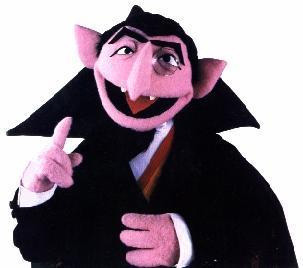| Sun | Mon | Tue | Wed | Thu | Fri | Sat |
|---|---|---|---|---|---|---|
| 1 | 2 | 3 | 4 | 5 | ||
| 6 | 7 | 8 | 9 | 10 | 11 | 12 |
| 13 | 14 | 15 | 16 | 17 | 18 | 19 |
| 20 | 21 | 22 | 23 | 24 | 25 | 26 |
| 27 | 28 | 29 | 30 | 31 |
CATEGORIES
RECENT ENTRIES
BLOG ROLL
Accents sketchy, according to science
Study finds we're prone to distrust foreign accents, confirming what we all learned watching Rocky and Bullwinkle.
 Perhaps complicating the fact, well-known in comedy-research circles, that accents are always silly and endearing, research by Chicago psychologists shows that we tend to mistrust those who speak differently. In the study published in the Journal of Experimental Psychology, researchers asked participants to listen to pre-recorded trivia statements and rate them on a scale of truthfulness. Participants ranked heavily accented speakers at an average 6.84 on the scale, compared to 7.5 for native speakers. A subsequent experiment showed that even when participants were informed about the nature of the testing, their trust of the heavily accented speakers was unchanged. “Accent might reduce the credibility of non-native job seekers, eyewitnesses, reporters, or people taking calls in foreign call centers,” says Shiri Lev-Ari, a psychology postdoc at the University and lead author of the study.
Perhaps complicating the fact, well-known in comedy-research circles, that accents are always silly and endearing, research by Chicago psychologists shows that we tend to mistrust those who speak differently. In the study published in the Journal of Experimental Psychology, researchers asked participants to listen to pre-recorded trivia statements and rate them on a scale of truthfulness. Participants ranked heavily accented speakers at an average 6.84 on the scale, compared to 7.5 for native speakers. A subsequent experiment showed that even when participants were informed about the nature of the testing, their trust of the heavily accented speakers was unchanged. “Accent might reduce the credibility of non-native job seekers, eyewitnesses, reporters, or people taking calls in foreign call centers,” says Shiri Lev-Ari, a psychology postdoc at the University and lead author of the study.
This contempt of cadence might not surprise those of us well versed in American popular culture: all the best villains have accents, and many of them are quite hard to understand (frankly I find these two completely incomprehensible.) Some of them can even be quite finicky about their own style of pronunciation.
But we live in a modern age, one in which it's important to bridge gaps in understanding rather than perpetuate stereotypes. I, for one, think we need to begin healing the deep wounds of mistrust towards accented speakers. Let's take some positive examples of Englishly-challenged figures in the popular media: Count von Count, for instance, who routinely cooperates with his puppet-American castmates for mathematical justice. Or the Terminator who, in spite of the Austrian-inflected evil for which he was programmed, shows that he has the capacity for change in Judgment Day. So let's put our prejudices behind us and focus not on whether we can trust accented English speakers, but on what they have to teach us.
Burke Frank, '11
July 23, 2010
